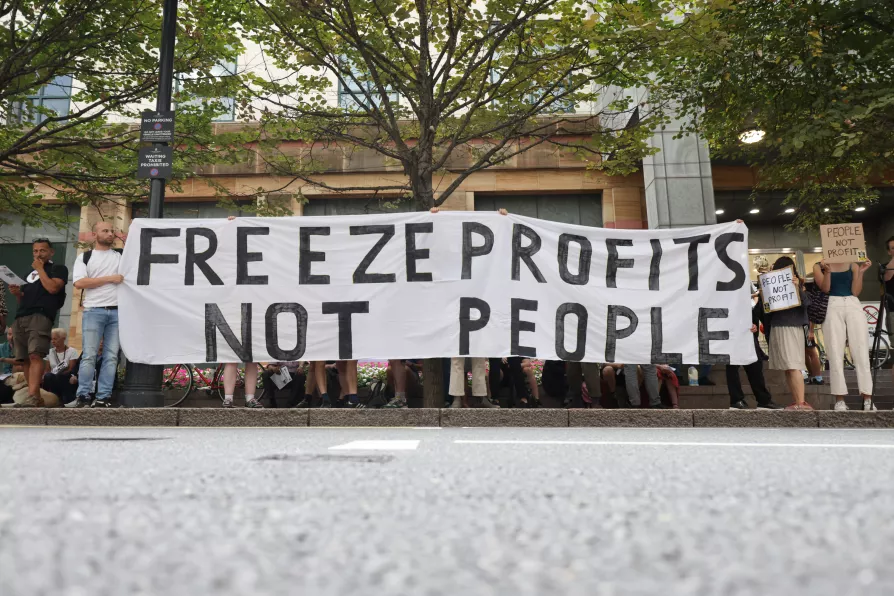RAMZY BAROUD offers six reasons why Netanyahu is prolonging conflict in the Middle East

 A protest outside Ofgem HQ in Canary Wharf today
A protest outside Ofgem HQ in Canary Wharf today
THE scale of the deepening social crisis is beginning to dawn across Europe. The 80 per cent increase in household energy costs in Britain may be exceptionally big.
But the crisis is far from unique to Britain. Nor is the kind of excuse that Boris Johnson trotted out on yet another visit to Ukraine this week: that ordinary households in Britain have to endure soaring prices and falling living standards as part of “standing up to Vladimir Putin.”
French President Emmanuel Macron said similar on Wednesday as he prepared his government for massive public anger and bitter opposition to his programme of attacks on pensions and benefits.

US tariffs have had Von der Leyen bowing in submission, while comments from the former European Central Bank leader call for more European political integration and less individual state sovereignty. All this adds up to more pain and austerity ahead, argues NICK WRIGHT

Starmer sabotaged Labour with his second referendum campaign, mobilising a liberal backlash that sincerely felt progressive ideals were at stake — but the EU was then and is now an entity Britain should have nothing to do with, explains NICK WRIGHT

It’s the dramatic rise of China with its burgeoning economy that has put the Trump administration into a frenzy – with major implications both at home and abroad, argues MICHAEL BURKE











